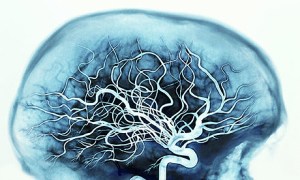 Science journal Nature Neuroscience recently found that the size of the brain’s center is related to your social life, leading many to believe that online platforms like Facebook and Twitter are partially responsible. Medical professionals from both Boston University and Harvard University surveyed the social networks of nearly 60 adults, measuring the amount of people they were in regular contact with as well as the complexity of these relationships, or how many groups those contacts fit into.
Science journal Nature Neuroscience recently found that the size of the brain’s center is related to your social life, leading many to believe that online platforms like Facebook and Twitter are partially responsible. Medical professionals from both Boston University and Harvard University surveyed the social networks of nearly 60 adults, measuring the amount of people they were in regular contact with as well as the complexity of these relationships, or how many groups those contacts fit into.
The study determined that the amygdala, the core deep inside the brain, is bigger for those with large social circles, but it’s still unknown whether a sizable group of friends increases the amygdala’s size, or if a person with a larger amygdala naturally attracts more peers. Lisa Feldman Barrett, part of the research team, says it could be both, but further research is necessary. Still, the study suggests that the human brain size could be expanding as our social lives continue to develop, which only seems natural. As our social networks grow, it appears that the amygdala must also evolve in order to meet the demands of the extremely multifaceted nature of human relationships. Question is, does this apply to our online lives as well?
Researchers surmised that “a larger amygdala might enable us to more effectively identify, learn about and recognize socioemotional cues in conspecifics, allowing us to develop complex strategies to cooperate and compete.” It could easily be argued that the increasing intricacies of relationships is due in part to social networking sites. Still, the study does not directly identify the possible role social networking websites play, and its unknown the degree of cognitive effort these types of relationships require. So don’t get too excited about your thousands of Facebook friends quite yet – for now, real life connections are the kind that will give you a bigger brain.


